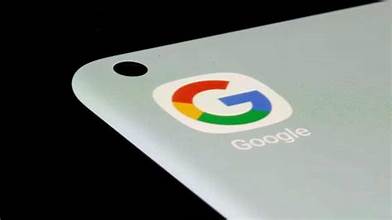“Google makes it a challenge to put a competitor on the phone (powered by Android),” Bornstein said. “If a competition were a race, it’s like Google gets to run on a nice smooth track and everyone else has to run on quicksand.”
In its original lawsuit, Epic said Google “prevents app distributors from providing Android users ready access to competing app stores.”
Were it not for Google’s “anticompetitive” behavior, Epic said in its complaint, Android users “could freely download apps from developers’ websites, rather than through an app store, just as they might do on a personal computer.”
Technically, it is possible to download apps from outside of Google’s Play Store, but Epic argued that for most people this is too cumbersome, requiring as many as 16 steps, for instance, to download Fortnite. And for those who try, Google sends “dire warnings that scare most consumers into abandoning the lengthy process.”

Google’s lawyer, meanwhile, attacked Epic as a self-interested game maker trying to use the courts to save itself money while undermining an ecosystem that has spawned billions of Android smartphones to compete against Apple and its iPhone.
Epic’s David vs. Goliath approach seems to have won over the jury. A key witness, Google CEO Sundar Pichai, sometimes seemed like a professor explaining complex topics while standing behind a lectern because of a health issue. Epic CEO Timothy Sweeney, meanwhile, painted himself as a video game lover on a mission to take down a greedy tech titan.
WHAT HAPPENS NEXT?
Google sought to avoid having a jury trial, only to have its request rejected by U.S. District Judge James Donato. Now, Donato will determine what steps Google will have to take to unwind its illegal behavior in the Play Store. The judge indicated he will hold hearings on the issue during the second week of January.
Google said it will appeal the decision. But Wedbush analyst Michael Pachter says the search giant faces an “uphill battle.” While remedies Google must enact haven’t yet been decided, Pachter said he believes that its rivals will focus on the fee the company charges developers in its store.
In the Apple case, the judge barred the company from implementing “anti-steering provisions,” Pachter said, that is, preventing developers from steering people toward third-party payment stores outside of Apple’s own app store. While Apple’s fees within its own store remain largely unchallenged, he added, “the anti-steering prohibition has led to a slow creep of traffic toward direct-to-consumer transactions.” Apple is still appealing the decision.
“We expect Apple to ultimately lose its appeal,” Pachter said in a research note. “Google’s loss, however, allows for DIRECT store competition within its Android platform, and we believe that it is likely to result in lower platform fees over the next several years.”

WHAT DOES THE VERDICT MEAN FOR GOOGLE?
Depending on how the judge enforces the jury’s verdict, Google could lose billions of dollars in annual profit generated from its Play Store commissions. But the company’s main source of revenue — digital advertising tied mostly to its search engine, Gmail and other services — won’t be directly affected by the trial’s outcome.
Shares in Google’s parent company, Mountain View, California-based Alphabet Inc., slipped less than 1% on Tuesday. The stock is up 50% so far this year.
DIDN’T APPLE WIN A SIMILAR CASE?
Indeed, Apple prevailed in a similar case that Epic brought against the iPhone app store. But that 2021 trial was decided by a federal judge in a ruling that is currently under appeal at the U.S. Supreme Court.
The nine-person jury in the Play Store case apparently saw things through a different lens, even though Google technically allows Android apps to be downloaded from different stores — an option that Apple prohibits on the iPhone.



